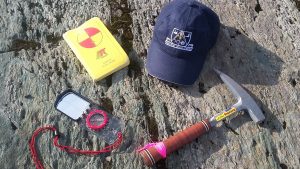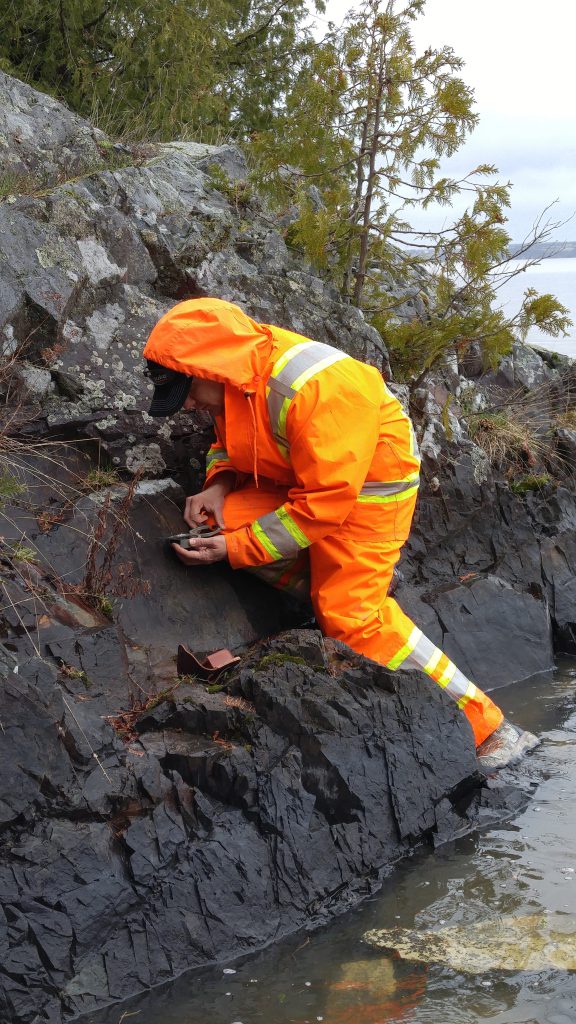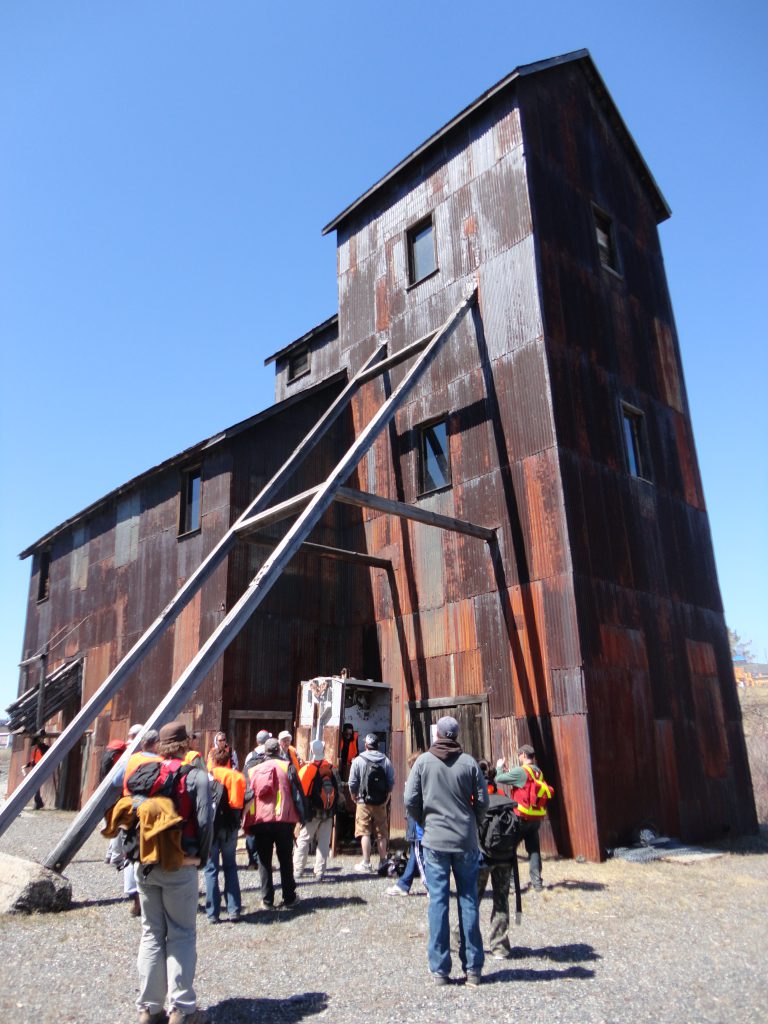Student Success & The Northern Experience
Our Mineral Exploration Techniques program provides you with the entry-level knowledge and skills to function as a valuable member of a mineral exploration team on projects in grassroots exploration to mine-site exploration.
This two-semester program incorporates both classroom teaching and valuable hands-on experience during a culminating two-week field school producing graduates that are ready to enter the job market with a college certificate after only one year of study.
Does this program sound like a good fit for you? Connect with us to learn more.

Course Information
2024-2025 Academic Year
Semester 1
In this course, students will learn essential skills for success in college and the workplace. This course focuses on developing and strengthening oral and written communication skills, and critical thinking ability. During this course, students will engage in a variety of forms of communication with a focus on upholding the principles of academic integrity. Students will develop the skills necessary to create discipline-specific documents, practice business etiquette and professionalism, and apply critical thinking strategies to practical scenarios. Upon successful completion of this course, students will be able to plan and draft concise, coherent and well-organized writing assignments that are tailored to specific audiences and purposes.
42 Hours
This course covers basic algebra properties, graphing the straight line, basic geometry and trigonometry, and solving a system of equations graphically and algebraically. It also covers vector addition by components and by the cosine and sine laws.
56 Hours
This course introduces the student to the Mineral Exploration industry, the associated policies, legislation and acts that govern exploration on a global, national and provincial scale. It examines the Mining sequence in Ontario. Students will learn about the process and responsibilities of companies from consultation, exploration, advanced stage exploration, development, production to closure/reclamation. This course also provides an introduction Mineral Economics as it pertains to global markets down to local scale impacts. The course introduces the different types of economic mineral deposits.
42 Hours
This course introduces the student to the sampling methods and protocols used in the mineral exploration and mining industry. The students learn various methods and processes for extracting, processing, recording, shipping and storage of geological, soil, vegetation and water samples. The students learn the importance of QA/QC – Quality Assurance/ Quality Control, accuracy, contamination prevention, accountability and transparency in sampling methods. Data entry creating spreadsheets in Microsoft Excel as a database platform is practiced.
42 Hours
This course introduces the student to the science of geology and mineralogy and the theories that govern our understanding of the Earth’s processes and geomorphological processes that form the landscapes we see every day. These topics will be examined in context with how different ore deposits have different inherent geological indicators and subsequent exploration methods employed governed by the landscapes in which they occur.
42 Hours
This course introduces the student to the best practices and standards in the mineral exploration workplace including the field, lab and coreshack environment setting. Students learn the general safety protocols and standards employed in the field of mineral exploration including bush safety and survival. Students learn about the social and personal benefits of safe work practices and the methods to best prevent accidents or injuries. Students will review the role, rights and responsibilities of an individual in today’s health and safety conscious world.
42 Hours
Semester 2
Improving your knowledge and understanding of the history of the Indigenous peoples of what we now call Canada is an important step to enable Indigenous and non-Indigenous people, organizations, and communities to work together more respectfully. Throughout this course you will have the opportunity to learn, discuss and reflect about many topics that are relevant in the learning journey towards reconciliation.
42 Hours
This course introduces the basic principles of geographic information systems. Emphasis will be placed on the theory, uses and applications of GIS in mineral exploration. Students will examine the relationships between sample data, databases and GIS in mineral exploration and digital map making.
42 Hours
Students will gain direct hands-on experience in drill-core logging, drill-core-cutting and sampling of rock, soils, vegetation and water. Field work includes outcrop, grid and traverse mapping, line-cutting, digital map making, data entry, geophysical methods, geochemical methods, orienteering and bush craft, geology and geomorphology.
56 Hours
This course introduces the student to the theory and application of geophysical surveys in mineral exploration. Students will examine the relationship of magnetic, electrical, electromagnetic and gravity properties and surveys to the various ore deposit type signatures.
42 Hours
This course introduces the student to concepts of environmental vulnerability and responsibility in mineral exploration industry. It outlines the responsibilities and best practices of all parties in regard to the Environmental Protection Act and the Mining Acts of Ontario. It examines the techniques used by the mineral exploration industry to mitigate the potential for environmental impacts during exploration activities.
42 Hours
This course introduces the student to the basics of how to complete fieldwork efficiently, safely and with regard for the environment. Students learn about the components of maps and field notes and how to interpret air photos, topographic and geological maps and cross-sections. The course teaches the students about orienteering, compass and GPS use and bush skills.
42 Hours
This course introduces the student to the theory and application of geochemical surveys in mineral exploration. Students analyze the relationship of rock, soil and biogeochemical chemistry to various ore deposit type signatures. Students also examine the various analytical methods used in industry.
42 Hours
Career Ready Graduates
Pathways to Success
Certificate to Diploma: Graduates of the Mineral Exploration Techniques program may choose to continue their studies in the Haileybury School of Mines – Mining Engineering Technician Diploma program at Northern College, with advanced standing in three common courses.
Articulation Agreements
A number of articulation agreements have been negotiated with universities and other institutions across Canada, North America and internationally. These agreements are assessed, revised and updated on a regular basis. Please contact the program coordinator for specific details if you are interested in pursuing such an option.
- Complete all work in compliance with current legislation, standards, regulations and guidelines.
- Comply with current health and safety legislation, as well as organizational practices and procedures.
- Communicate information accurately and effectively in oral, visual, written and electronic forms.
- Develop and use personal and professional strategies and plans to enhance professional growth and competence.
- Collect representative geological samples and data and perform routine tests, using current and relevant tools.
- Assist with the identification, analysis and resolution of mineral exploration related operations and problems.
- Collect and assist in the appropriate application of mineral exploration data from new and existing sources.
- Use conventional and electronic technology to assist in the monitoring, control and execution of mineral exploration activities.
- Apply the principles of mathematics, science and economics to assist in the analysis, evaluation and recommendation of solutions to technical problems related to mineral exploration activities.
- Apply environmental and community – sustainability best practices in mineral exploration workplaces.
Career Opportunities
Upon the completion of the Mineral Exploration Techniques program, graduates will have a broad understanding of the mineral exploration industry and how it relates to mining.
Students will graduate with a comprehensive range of skills required to be immediately employable in the mineral exploration industry including sampling, geological surveys, fieldwork and Geographic Information Systems (GIS). They will be mindful of health and safety, ethical practices, environmental sustainability and societal conscientiousness. Graduates may find employment as: Geological Assistant/Technician, Core Technician, Lab Assistant, Field Assistant/Technician, Geophysical Assistant/Operator, and/or Sales Representative.
- Mineral sampler
- Employed in mineral ore and metal processing plants such as copper, lead and zinc, refineries, uranium processing plants, steel mills, aluminum plants, precious metal refineries, cement processing plants, clay, glass and stone processing plants and foundries.
Admissions Information & Requirements
Program Specific Requirements
Mining Field School Supplies [PDF, 290 KB]
Admission Requirements
- Ontario Secondary School Diploma (OSSD)
- Grade 12 English (C, U)
- Grade 12 Math (C, U) (MCT4C preferred; MAP4C is accepted with a minimum GPA of 60%)
- Grade 12 Chemistry (C, U) recommended
- Grade 12 Physics (C, U) recommended
- Good computer skills and a familiarity with Microsoft Word, Excel and PowerPoint recommended
Or equivalent
Academic prerequisites for this program may be obtained free of charge through Academic Upgrading.
Applicants who do not have a high school diploma or equivalent and will have reached the age of 19 years on or before the start of the program must undergo academic testing and may be required to complete Prior Learning Assessment & Recognition (PLAR) process to demonstrate equivalency of admission requirements prior to admission into a program.
For more details, please contact the Admissions Office at 705-235-7222 or admissions@northern.on.ca.
Tuition, Fees & Payments
The tuition and fees information is typically updated yearly for the upcoming Academic Year in May. The amounts are for the full academic year.
Amounts may be based on last years tuition and fees and are subject to change.
If you are a current student, please refer to your Student Account or see a Student Services Clerk for the most up-to-date information.
Tuition
Domestic: $2,720.56
International: $14,813.46
Program Specific Fees
Transportation & Field Trips: $100.00Ancillary Fees
Ancillary fees are paid in full for the entire academic year in the first semester.
The Convocation and Official Documentation Fee (GRA) of $100.00 only applies for the first year of each program.
Please see Detailed Ancillary Fees for more information.
| Ancillary Fees by Campus | Domestic | International |
| Distance (CK, CH, OL) | $772.50 | N/A |
Find Your True North.
At Northern College, you’re a part of a community.
From your teachers to support staff and administrators, we are all here to help you get an education and make some lasting connections along the way.
Your success is incredibly important to you, so we provide student supports to help you achieve your goals. From study assistance and accessibility services to mental health supports and financial aid, we’ve got you covered.
Each of Northern’s campuses boasts exercise facilities, a gym, cafeteria, study areas and a library – places that you can go to help keep you focused as you work your way through your studies. The communities we call home are incredible places, filled with amazing people and things to do.


Does Northern College sound like a good fit for you?
Here’s how to take your first steps on your new exciting and rewarding career path.
